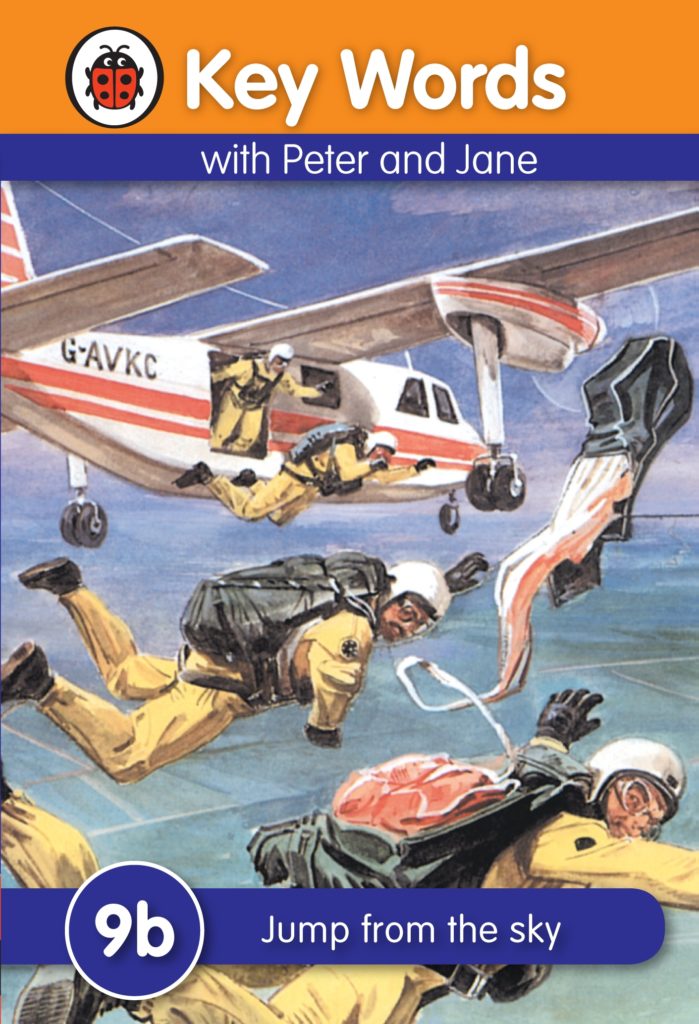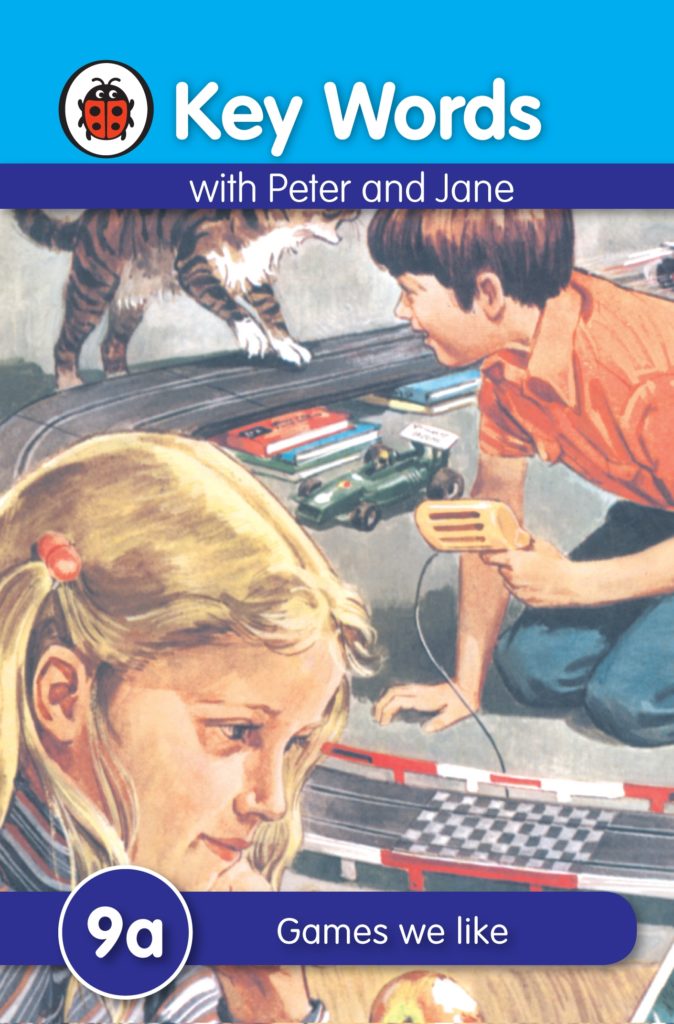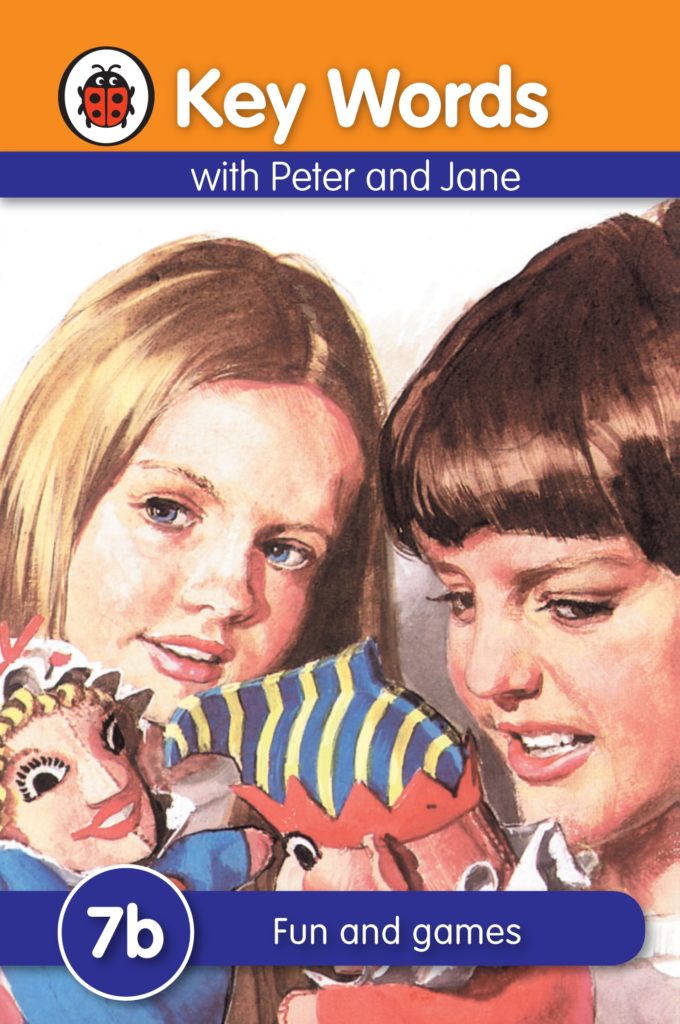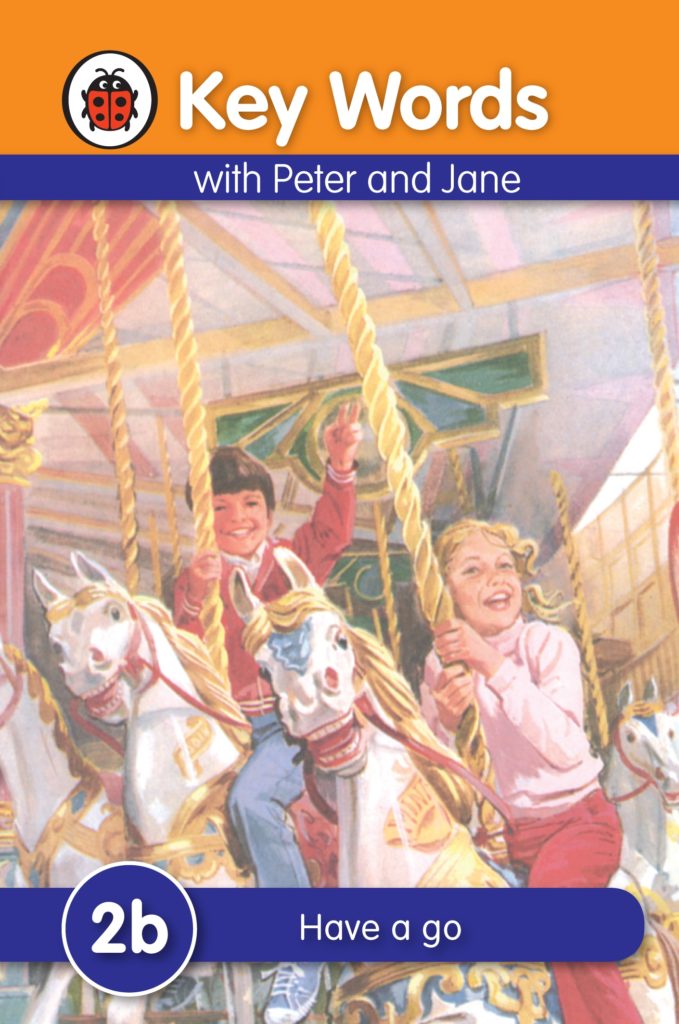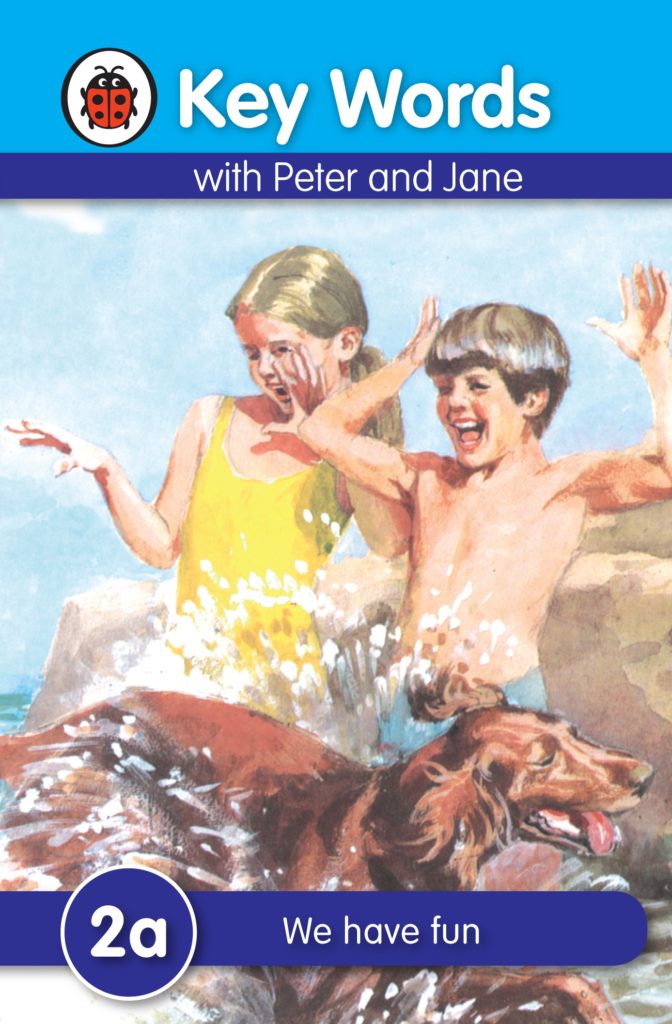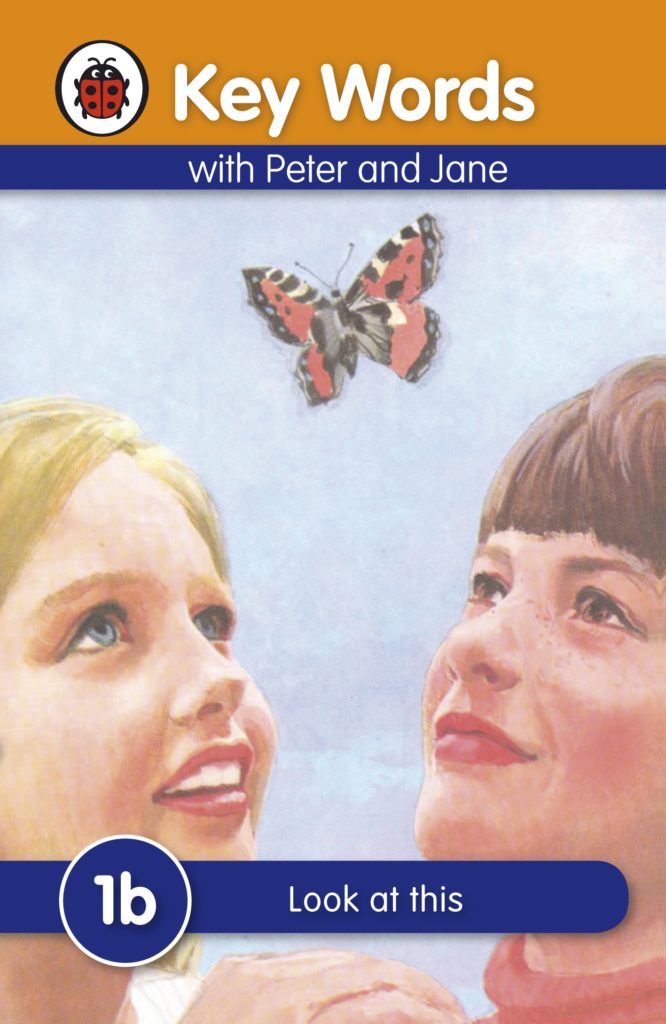Key Words with Peter and Jane uses the most frequently met words in the English language as a starting point for learning to read successfully and confidently. The Key Words reading scheme is scientifically researched and world renowned. In book 9b, Peter and Jane visit an air show and introduce 109 new words, including ‘sometimes’,
9b Jump from the sky
